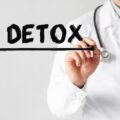Recognizing the struggle with substance or alcohol addiction is only part of people’s concerns with addiction. Another pressing concern that weighs on many minds who are trying to decide whether to seek treatment is whether they will lose their jobs.
Finding work can be hard in this competitive economy, and it can be daunting to consider leaving work to take time for the treatment you need. However, thanks to the Family and Medical Leave Act (FMLA), you shouldn’t need to make a choice between treatment or your job.
What is the Family and Medical Leave Act?
FMLA is a law that was enacted in 1993 to provide protection for eligible employees of covered employers who need time off work for family emergencies and medical purposes. If provides up to 12 weeks worth of unpaid, protected leave per 12-month period. This means that while you might not earn pay during your time away from work for a medical reason, your job status is still protected and you will still work after you have recovered.
If you are struggling with addiction and need professional treatment, you may be eligible to to qualify for FMLA regulated medical leave if:
- Your employer is covered.
- You have worked for the same employer for at least 12 months.
- You have worked for at least 1,250 hours during the 12-month period prior to requesting medical leave.
- Your employer has at least 50 employees who live within 75 miles of the employment location.
If you are unsure if you are eligible for FMLA coverage, talk to your human resources department. They can help you determine your coverage status and coordinate your time off while you seek treatment.
Start the Recovery Journey at Tulip Hill Recovery
Whether or not you qualify for FMLA coverage, if you are struggling with addiction, you need to seek help. At Tulip Hill Recovery, we will work to make sure you find the right treatment you need, whether it is with us or with a better-suited program for your needs.
If you are a good candidate for treatment with us, we will focus on discovering what factors in your life may be contributing to addiction in order to treat it at its main source. Our treatment model emphasizes the dual diagnosis approach, which means we treat addiction as well as co-occurring mental health disorders that might be fueling the addiction. This helps a person in recovery become better equipped for dealing with the challenges of mental health disorders without feeling like they need substances or alcohol to cope.
Are you ready to talk to someone about treatment for addiction for you or someone you love? Please contact us online or call us at 877-845-8192 to get in touch with our team and help start the recovery journey.



 Call Us
Call Us
 877-845-8192
877-845-8192